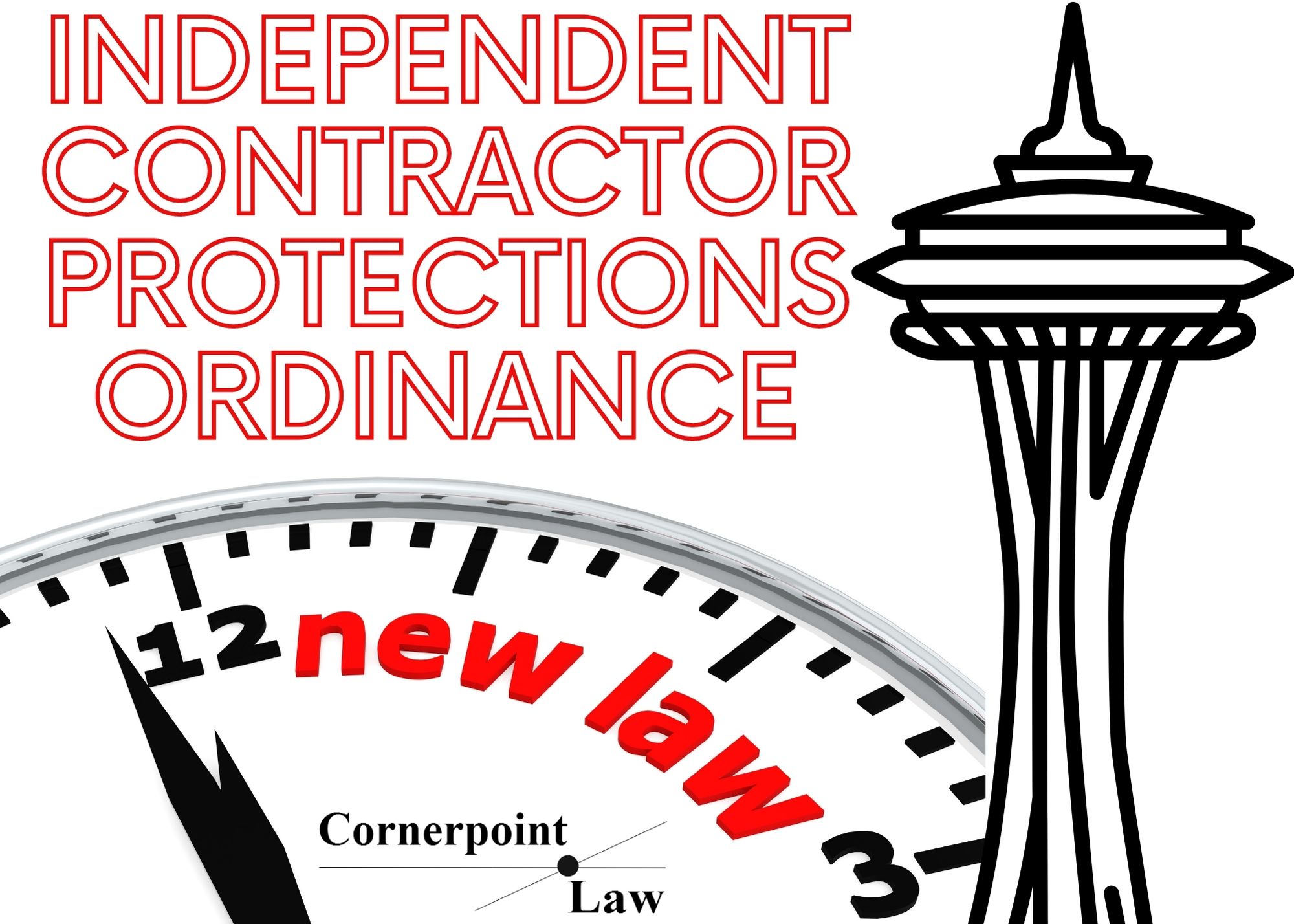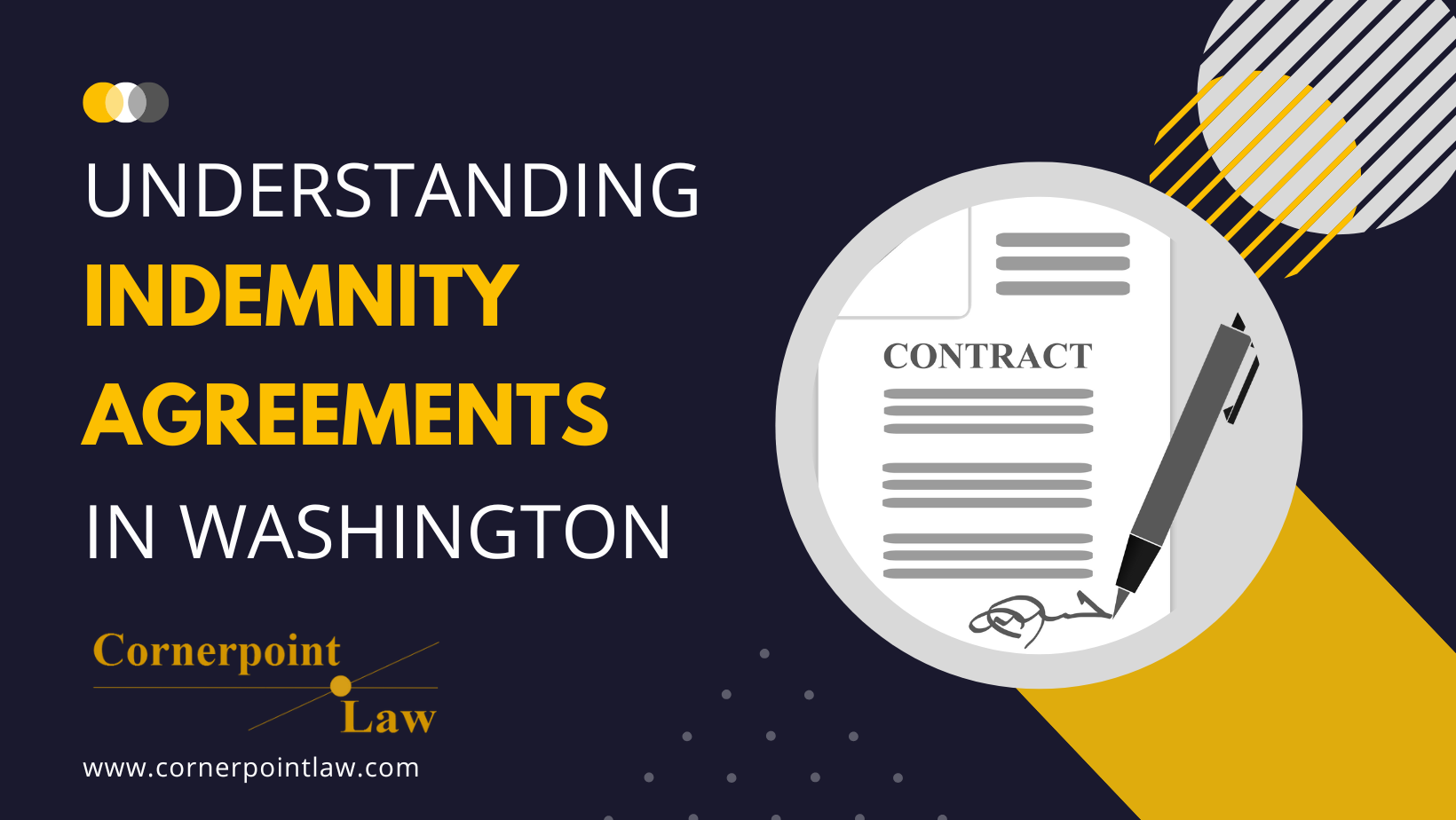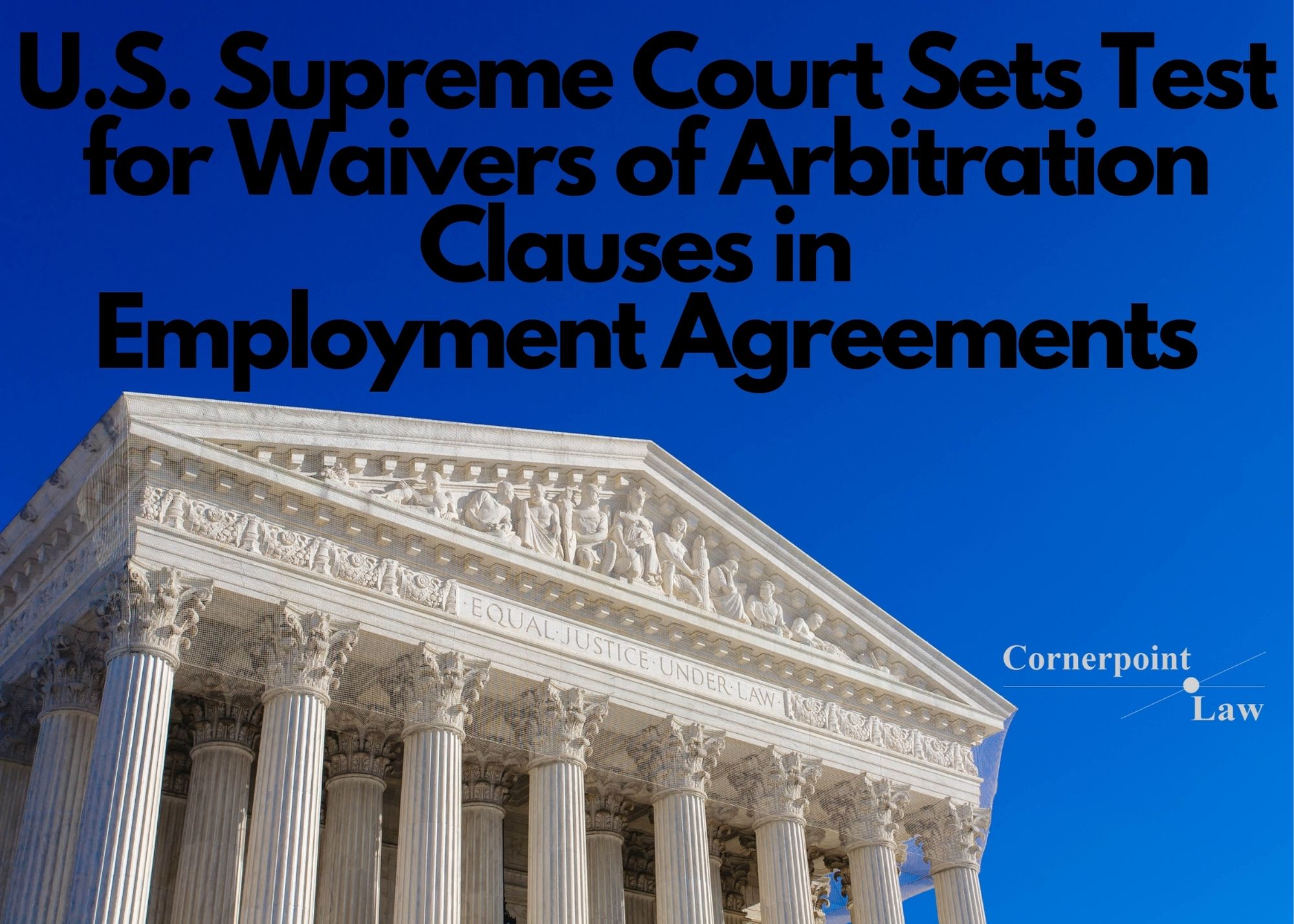10 Things to Know About Seattle’s New Independent Contractor Protections Ordinance
February 8, 2022
Unauthorized use and/or duplication of blogposts without express and written permission is strictly prohibited. Excerpts and links may be used, provided that full and clear credit is given, and with appropriate and specific direction to the original content.
The author of this post can be reached by phone at 206-693-2718 or by email.
Small Businesses That Use Independent Contractors Need to Prepare
By Stacia Hofmann
In June 2021, the Seattle City Council passed a new law, called the Independent Contractor Protections Ordinance, SMC 14.34, designed to more closely regulate businesses that hire independent contractors. As an attorney who regularly drafts and interprets independent contractor agreements for small businesses as well as for independent contractors, I’ve put together a list of 10 things that business owners and the self-employed should know now.
- The Independent Contractor Protections Ordinance goes into effect on September 1, 2022 and some rules are still being finalized.
- The law only applies to independent contractors who do the hired work (in whole or in part) in Seattle, Washington and are individuals, single member LLCs, or single shareholder corporations.
- The law only applies to independent contractor relationships where the hiring business is expected to pay the independent contractor at least $600.
- Under the new law, prior to the work being performed, the hiring business must provide the independent contractor with a pre-contract disclosure containing certain work and pay information.
- If the independent contractor is already working for the hiring business when the law goes into effect in September 2022, the hiring business must still provide that independent contractor with a disclosure.
- The pre-contract disclosure sets the legally-binding terms and conditions of the independent contractor relationship, unless there is clear and convincing evidence of different terms and conditions (like in a signed contract).
- If the hiring business fails to provide a pre-contract disclosure to the independent contractor, and if there is a disagreement as to who agreed to what, then the law presumes that the independent contractor’s terms and conditions were agreed to by the hiring business.
- The hiring business’s payments to the independent contractor are due no later than 30 days after the independent contractor’s services are performed.
- The hiring business must provide a payment disclosure statement to the independent contractor each time payment is issued. The payment disclosure must contain certain pay information.
- There are fines and penalties for hiring businesses that do not comply with the Independent Contractor Protections Ordinance.
The Seattle City Council’s stated goals with the Independent Contractor Protections Ordinance are increased transparency and protection for independent contractors, fewer opportunities for hiring businesses to misclassify people as independent contractors instead of employees, and increased race, nationality, gender, and income equality.
Email or call me to see if Cornerpoint can help with your questions about the Independent Contractor Protections Ordinance, independent contractor agreements, or other employment or contract inquiries.
This blog is for informational purposes only and is not guaranteed to be correct, complete, or current. The statements on this blog are not intended to be legal advice, should not be relied upon as legal advice, and do not create an attorney-client relationship. If you have a legal question, have filed or are considering filing a lawsuit, have been sued, or have been charged with a crime, you should consult an attorney. Furthermore, statements within original blogpost articles constitute Stacia Hofmann’s opinion, and should not be construed as the opinion of any other person. Judges and other attorneys may disagree with her opinion, and laws change frequently. Neither Stacia Hofmann nor Cornerpoint Law is responsible for the content of any comments posted by visitors. Responsibility for the content of comments belongs to the commenter alone.




